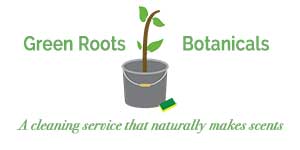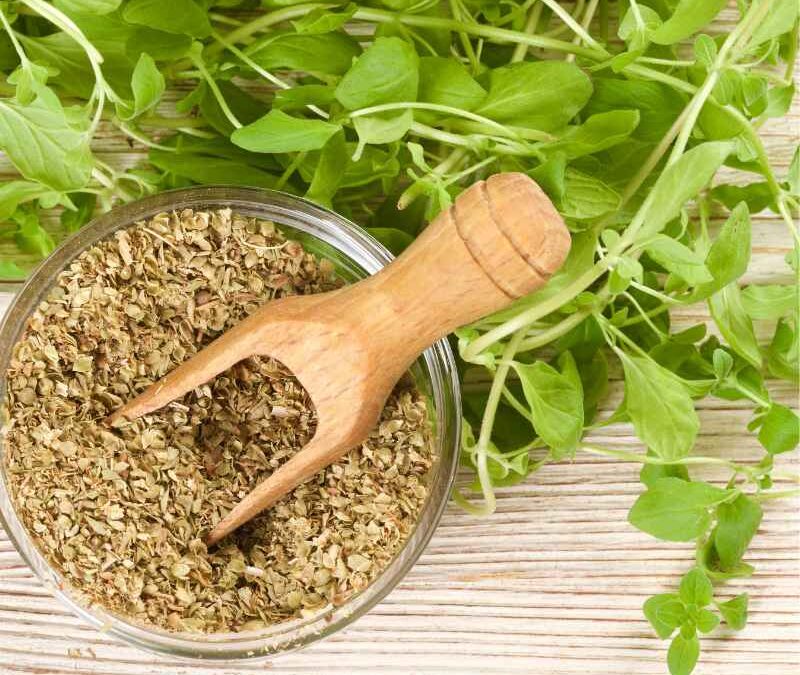Is There a Difference Between Oil of Oregano And Oregano Essential Oil?
If you’ve ever explored the world of natural remedies and essential oils, you’ve likely come across the terms “Oil of Oregano” and “Oregano Essential Oil.” At first glance, they may seem interchangeable, but they are two distinct products with unique properties and uses. In this article, we’ll unravel the mysteries behind these herbal extracts, highlighting their differences and helping you make informed choices for your well-being. A simplified breakdown of oil of oregano vs. oregano essential oil.
Understanding Oil of Oregano
What is Oil of Oregano?
- Source: Oil of Oregano is derived from the leaves of the oregano plant, scientifically known as Origanum vulgare.
- History: This aromatic herb has a rich history of use in traditional medicine, dating back centuries.
- Active Compounds: The key to Oil of Oregano’s potency lies in compounds like carvacrol and thymol.
- Health Benefits: It’s often sought after for its potential health benefits, including immune support and digestive aid.
Oregano Essential Oil Explained
What is Oregano Essential Oil?
- Extraction: Oregano Essential Oil (Origanum vulgare) is extracted through a steam distillation process from the leaves and stems of the Origanum vulgare.
- Composition: The essential oil boasts a high concentration of diverse chemical composition, with carvacrol and thymol as prominent constituents.
- Uses: Oregano Essential Oil finds applications in aromatherapy and skincare, thanks to its unique aromatic profile.
- Safety: Essential Oil Safety by Tisserand and Young (second edition), says Oregano is known to be a moderate skin irritant and a strong mucous membrane irritant. Recommended maximum use of not more than 1% concentration on mucous membrane.
Differences Between Oil of Oregano and Oregano Essential Oil
Here’s a straightforward breakdown of the distinctions:
oil of oregano vs. oregano essential oil.
- Extraction Methods: Oil of Oregano is usually extracted through a cold-press process, whereas Oregano Essential Oil is obtained via steam distillation.
- Chemical Composition: While both contain carvacrol and thymol, oregano essential oil has a much higher concentration of these chemical compounds.
- Uses and Benefits: Oil of Oregano is typically ingested, whereas Oregano Essential Oil is primarily used topically and aromatically.
Health Benefits and Uses
Overlapping and Unique Benefits:
- Both products offer immune support, thanks to their antimicrobial properties.
- Oil of Oregano is more gentle.
- Oregano Essential Oil can enhance respiratory wellness when diffused.
- Both can be beneficial in skincare routines, with distinct strengths. Always dilute oregano essential oil with a carrier oil.
Potential Risks and Precautions
Safety First:
- While natural, these products can have side effects, such as skin irritation or digestive discomfort.
- Usage instructions should be followed carefully.
- Consult a healthcare professional, especially if you’re pregnant, nursing, or taking medications.
Choosing the Right Product
Factors to Consider:
- For culinary purposes, Oil of Oregano is the go-to choice.
- When selecting either product, prioritize quality and purity.
- Look for reputable brands or sources known for their commitment to quality.
Making Oil Of Oregano At Home
If you are interested in making your own, here is a simple way to create a batch of homemade oregano oil:
Ingredients:
- Dried oregano leaves (enough to fill a small glass jar)
- Organic food-grade carrier oil (e.g., olive oil, grapeseed oil, fractionated coconut oil)
- Glass jar with a tight-fitting lid
Instructions:
-
Harvest and Prepare Oregano Leaves:
- Harvest fresh oregano leaves from your garden or purchase them from a trusted source. Make sure they are clean and dry.
- Remove any dirt or debris and let the leaves air dry to remove moisture content. Moisture can spoil the oil. It is very important to let the oregano leaves dry completely.
-
Fill the Glass Jar:
- Fill a clean glass jar with the oregano leaves, packing them loosely but not too tightly. It is very important to wash the jar with hot soapy water and rinse thoroughly. The jar also needs to be thoroughly dried as any moisture will spoil the finished product.
-
Add Carrier Oil:
- Pour your chosen carrier oil over the oregano leaves until they are completely covered with about one inch of extra oil at the top. Ensure there are no air bubbles, as these can lead to spoilage. Keep in mind if you plan to use your oil of oregano for culinary uses you will need to use a culinary carrier oil. Please be sure that your choice of carrier oil is food-grade and organic.
-
Seal the Jar:
- Close the jar with a tight-fitting lid to prevent air from entering. Make sure it’s sealed properly.
-
Infusion Period:
- Place the sealed jar in a warm, sunny spot, such as a windowsill, where it can receive indirect sunlight. The warmth will help facilitate the infusion process.
- Allow the mixture to infuse for at least two weeks, rolling the jar gently every day to agitate the contents.
-
Straining:
- After the infusion period, strain the oil through a fine mesh strainer or cheesecloth into a clean, dry glass container. Squeeze the leaves to extract as much oil as possible.
-
Storage:
- Store the homemade oregano oil in a cool, dark place to prevent deterioration. A pantry or cupboard is an ideal location.
- Ensure the container is tightly sealed to maintain freshness and potency.
Notes:
- The quality and potency of your homemade oil will depend on factors such as the oregano variety used and the oil’s infusion time.
- Always perform a patch test on your skin before using homemade oregano oil topically to check for any adverse reactions.
- If you plan to use this oil for culinary purposes, choose a carrier oil that complements the oregano flavor, such as extra virgin olive oil.
Making Essential Oils At Home
Please keep in mind that making essential oils at home can be a fun but complicated DIY project, however, it may not yield the same potency and consistency as professionally produced essential oils. For therapeutic use, I always recommend purchasing commercial Oregano essential oil from a reputable supplier to ensure quality and efficacy.
Conclusion
In conclusion, both Oil of Oregano and Oregano Essential Oil have their unique qualities and applications. The right choice depends on your specific needs and preferences when comparing oil of oregano vs. oregano essential oil. Always remember to consult with a healthcare professional before incorporating either oil of oregano or oregano essential oil into your wellness routine. These herbal extracts can be powerful allies on your journey to better health, but knowledge and caution are your best companions.
Have fun creating a life that naturally makes scents!
Read Next:
The information provided here is intended for educational purposes only and is not a substitute for professional medical advice, diagnosis, or treatment. Essential oils are potent natural compounds that can offer various benefits when used appropriately.
Some of the links on this website are affiliate links, which means that we may earn a commission if you click on the link or make a purchase using the link. When you make a purchase, the price you pay will be the same whether you use the affiliate link or go directly to the vendor’s website using a non-affiliate link. By using the affiliate links, you are helping support our website, and we genuinely appreciate your support.



